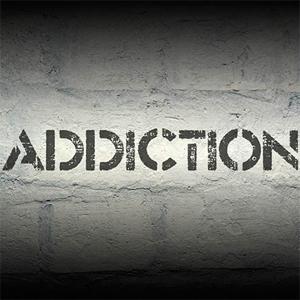Proposals to improve substance abuse care due to DHSS March 9
With a boost from $2 million in federal funding, the Delaware Department of Health and Social Services is calling for proposals to implement a centers of excellence model to improve the substance use system of care serving all three counties as a way to engage and treat more than 900 new individuals during the first 12 months of operation.
The request for proposals is being sought by the DHSS Division of Substance Abuse and Mental Health using $2 million in 21st Century Cures Act funding through the U.S. Substance Abuse and Mental Health Services Administration, Medicaid reimbursements and state general funds. Proposals are due by 11 a.m., Friday, March 9. The proposal calls for a centers of excellence model to improve the state's substance use system of care in the wake of the addiction epidemic that continues to claim an increasing number of lives in Delaware and across the country.
In 2016, 308 people died from overdoses in Delaware, according to the Division of Forensic Science. For that same year, the Division of Public Health's Office of Vital Statistics reported 264 substance-related overdose deaths in Delaware to the Centers for Disease Control and Prevention based on slightly different reporting criteria. Preliminary overdose death totals for 2017 are expected sometime in March from the Division of Forensic Science.
"We must reduce the harm caused by this horrific epidemic," said DHSS Secretary Dr. Kara Odom Walker, a board-certified family physician. "Through the centers of excellence model approach, our goal is to offer care to individuals suffering from opioid addiction that is high-quality, comprehensive, coordinated, evidence-based and person-centered. The treatment hubs will not only care for the individual's treatment needs, but also address the social determinants of health that impact a patient's overall health and treatment outcomes."
The proposal calls for each of three treatment providers serving all three counties to engage and treat 300 new individuals with opioid use disorder in the first year of operation for a total of 900 patients. New patients are defined as individuals addicted to opioids who have not had services in the past 60 days.
In addition to helping patients access medical and mental healthcare, the centers of excellence model will address the needs of individuals for housing, vocational opportunities, education and other wraparound services.
"We heard loud and clear from individuals, families and providers that we need to treat each person with an opioid use disorder as a whole person," said DSAMH Director Elizabeth Romero. “A critical component of that is using certified recovery peers to help individuals navigate their way through both the treatment and the social services worlds. Relying on the advice of someone with a similar lived experience will help individuals suffering from addiction to better coordinate their services and maintain their engagement with treatment."
The substance use system of care ensures 24/7 support through certified peer recovery specialists who will meet with acute care patients and hospital staff to discuss treatment needs and post-discharge services. Each center's team will have multiple components to its model including a director, a community engagement and management team director (preferably a social worker), and peer recovery coaches. Once individuals are in treatment, peers will help patients navigate and stay engaged in the healthcare system, and involve family members as appropriate to discuss treatment questions, issues, needs, options and preferences. Peers also will connect pregnant women to existing programs that provide home visiting and prenatal care.
Among the required services at each center: comprehensive substance use disorder evaluation; development of an individually tailored treatment plan; case management; medication-assisted treatment induction and maintenance, including the use of all three Food and Drug Administration-approved medications required – buprenorphine and vivitrol by the start of the program, and methadone within six months; group and individual counseling; links to recovery/transitional housing; psychiatric evaluation/treatment to include trauma-informed principles; co-management of behavioral and medical disorders; motivational strategies to encourage individuals with opioid use disorder to stay engaged in their treatment plans; prescription monitoring program checks and fluid drug screens as required by DSAMH.
Romero said the proposal also requires the centers to track and report aggregate outcomes, including intake assessments, clinical progress and receipt of supplementary services, and to participate in a learning collaborative with the other centers and treatment partners as a way to educate partners on evidence-based practices and to improve the coordination of care. Romero said she expects the first center of excellence to open by the third quarter of 2018.
If a loved one is struggling with addiction in Delaware, call DHSS' 24/7 Crisis Hotline 1-800-345-6785 to be connected to treatment and recovery options. To search online for treatment and recovery services in Delaware or nearby states, go to www.HelpIsHereDE.com.





















































